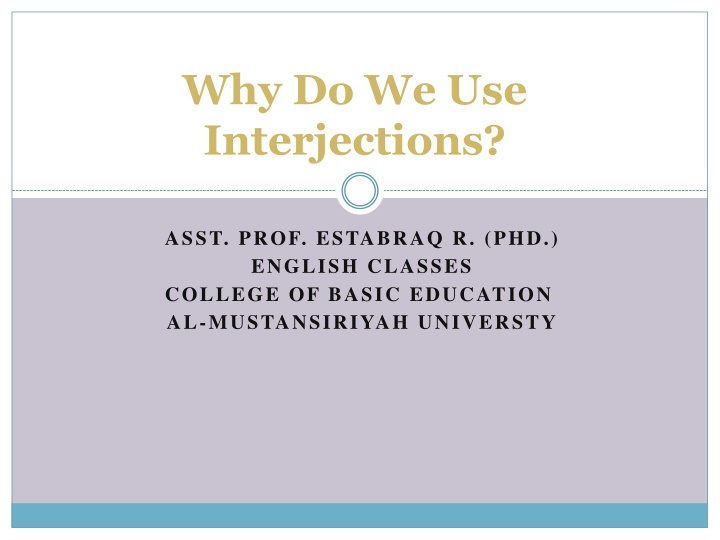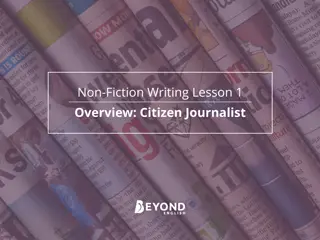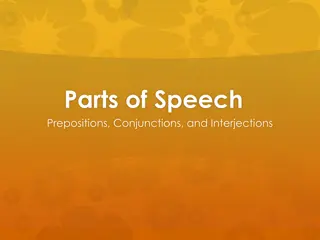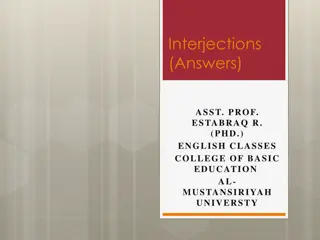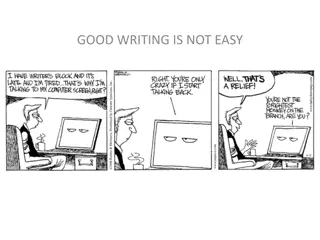Interjections in Writing
Interjections are expressive words used to convey emotions or sentiments in writing. Learn the appropriate punctuation for interjections and how to use them effectively. Discover when to use commas, periods, or exclamation marks following interjections. Explore scenarios where interjections can enhance or detract from business writing. Improve your writing skills with insights on utilizing interjections thoughtfully.
Download Presentation

Please find below an Image/Link to download the presentation.
The content on the website is provided AS IS for your information and personal use only. It may not be sold, licensed, or shared on other websites without obtaining consent from the author.If you encounter any issues during the download, it is possible that the publisher has removed the file from their server.
You are allowed to download the files provided on this website for personal or commercial use, subject to the condition that they are used lawfully. All files are the property of their respective owners.
The content on the website is provided AS IS for your information and personal use only. It may not be sold, licensed, or shared on other websites without obtaining consent from the author.
E N D
Presentation Transcript
Why Do We Use Interjections? ASST. PROF. ESTABRAQ R. (PHD.) ENGLISH CLASSES COLLEGE OF BASIC EDUCATION AL-MUSTANSIRIYAH UNIVERSTY
Why do we use intergections? There are two common questions related to interjections. (Question 1) What punctuation follows an interjection? Recognizing an interjection will help you to choose the punctuation that follows it. If your interjection is not a question (and most aren't), you have a choice. You can use a comma, a period (full stop) or an exclamation mark. Commas and periods are used for mild interjections, while exclamation marks are used for stronger expressions of emotion.
Often, an interjection followed by an exclamation mark will be followed by an exclamatory sentence (i.e., one with an exclamation mark). Jeepers! You scared the life out of me! Crikey! Do you think before you speak? (You can't use an exclamation mark at the end of your sentence if it's a question.)
The choice between a comma and a period depends on your desired flow of text. In other words, choose what looks good to you. If your interjection is a question, you must use a question mark. I always cheer up immensely if an attack is particularly wounding because I think, well, if they attack one personally, it means they have not a single political argument left. (Prime Minister Margaret Thatcher) (When an interjection is in the middle of the sentence, you must offset it with commas. It doesn't happen often.)
(Question 2) Can you use interjections in business writing? As a general rule, you should avoid using interjections in business writing, but, used very infrequently, they can be impactful and insert some pep into a document. Too much interjection-invoked pep, however, could make you look a little scatty.
